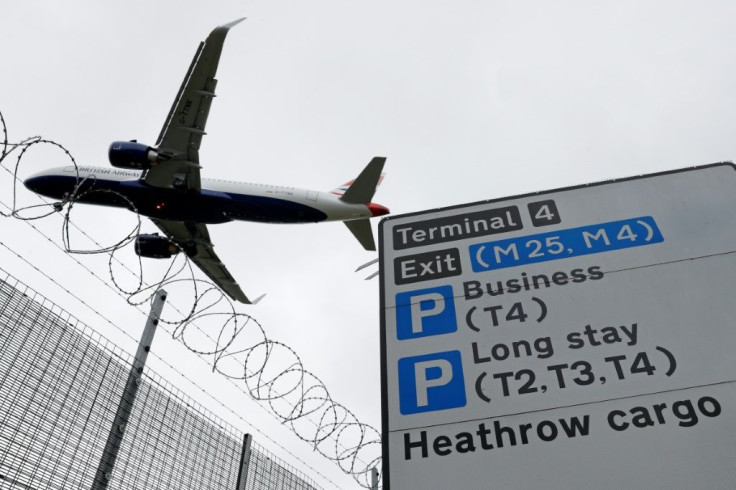Virus-ravaged UK Aviation Sector Faces Quarantine Woe

Britain's aviation sector grappled Monday with news that international arrivals will soon face a 14-day quarantine to stop new infections of coronavirus, which has already ravaged travel demand worldwide.
Prime Minister Boris Johnson announced the proposal late Sunday under a lockdown easing plan that seeks to avoid a second spike in COVID-19, after more than 32,000 deaths so far.
Most international travellers will soon have to tell border officials where they will self-isolate for 14 days, or face quarantining in government-arranged accommodation, official guidance showed Monday.
COVID-19 has already ravaged the global economy and devastated the aviation sector, with airlines axing most flights in response to collapsing demand for air travel amid national lockdowns.
The quarantine -- which will be introduced as soon as possible -- sparked outcry from industry organisations Airlines UK and the Airport Operators Association (AOA).
"As leaders of UK airlines and airports, we are writing to you to express our collective and serious concern and frustration about the proposed quarantine measure for UK inbound travellers," Airlines UK and the AOA said in an open letter to Johnson.
"An open-ended quarantine, with no set end date, will make an already critical situation for UK aviation, and all the businesses we support, even worse.
"People will simply choose not to travel to and from the UK, at the same time as economies in Europe and around the world begin opening up their borders and removing their own quarantines -- making the UK aviation sector unable to compete.
"In short, passenger travel cannot restart, and clarity from government is needed as to whether such an outcome is the intention or expectation of this measure."
They also requested an "urgent" meeting with the government and revealed that they had not yet been consulted.
"Grounding airlines indefinitely will further exacerbate an already devastating economic impact on UK aviation, prolonging the revenue crisis and delaying even further the start of a recovery for a sector that supports over 1.5 million UK jobs."
Earlier Monday, fresh evidence emerged of the devastating impact on London's Heathrow airport, which is usually Europe's biggest air hub by passenger numbers.
Heathrow airport, which is situated west of the British capital, revealed in a statement that the number of passengers nosedived 97 percent in April from the same month in 2019 to just 200,000.
That was the same amount of travellers that normally fly through the hub in a normal day prior to the COVID-19 outbreak, while the airport only provided services for essential travel like repatriation.
"Aviation is the lifeblood of this country's economy, and until we get Britain flying again, UK business will be stuck in third gear," said Heathrow chief executive John Holland-Kaye, who was also a signatory on the letter.
"The government needs to urgently lay out a roadmap for how they will reopen borders once the disease has been beaten, and to take an immediate lead in agreeing a common international standard for health in aviation that will allow passengers who don't have the infection to travel freely."
Heathrow, which is owned by a consortium led by Spanish construction giant Ferrovial, added that the 14-day quarantine plan will effectively close borders temporarily.
British Airways' owner IAG had warned last week that pre-crisis passenger demand would not return until 2023 at the earliest.
IAG Chief Executive Willie Walsh -- who was not a signatory on the letter -- said on Monday that the quarantine announcement had been a surprise.
"It's a very severe, very significant crisis," Walsh also told the parliamentary Transport Select Committee in a hearing on virus-hit demand for air travel.
"The announcement of a 14 day (quarantine) is definitely going to make it worse. We will have to review the impact of that."
In a separate development, Richard Branson's Virgin Group conglomerate unveiled plans Monday to sell $500 million of shares in space tourism company Virgin Galactic to help bolster Virgin Atlantic, which cut more than 3,000 jobs last week to save money.
© Copyright AFP {{Year}}. All rights reserved.





















